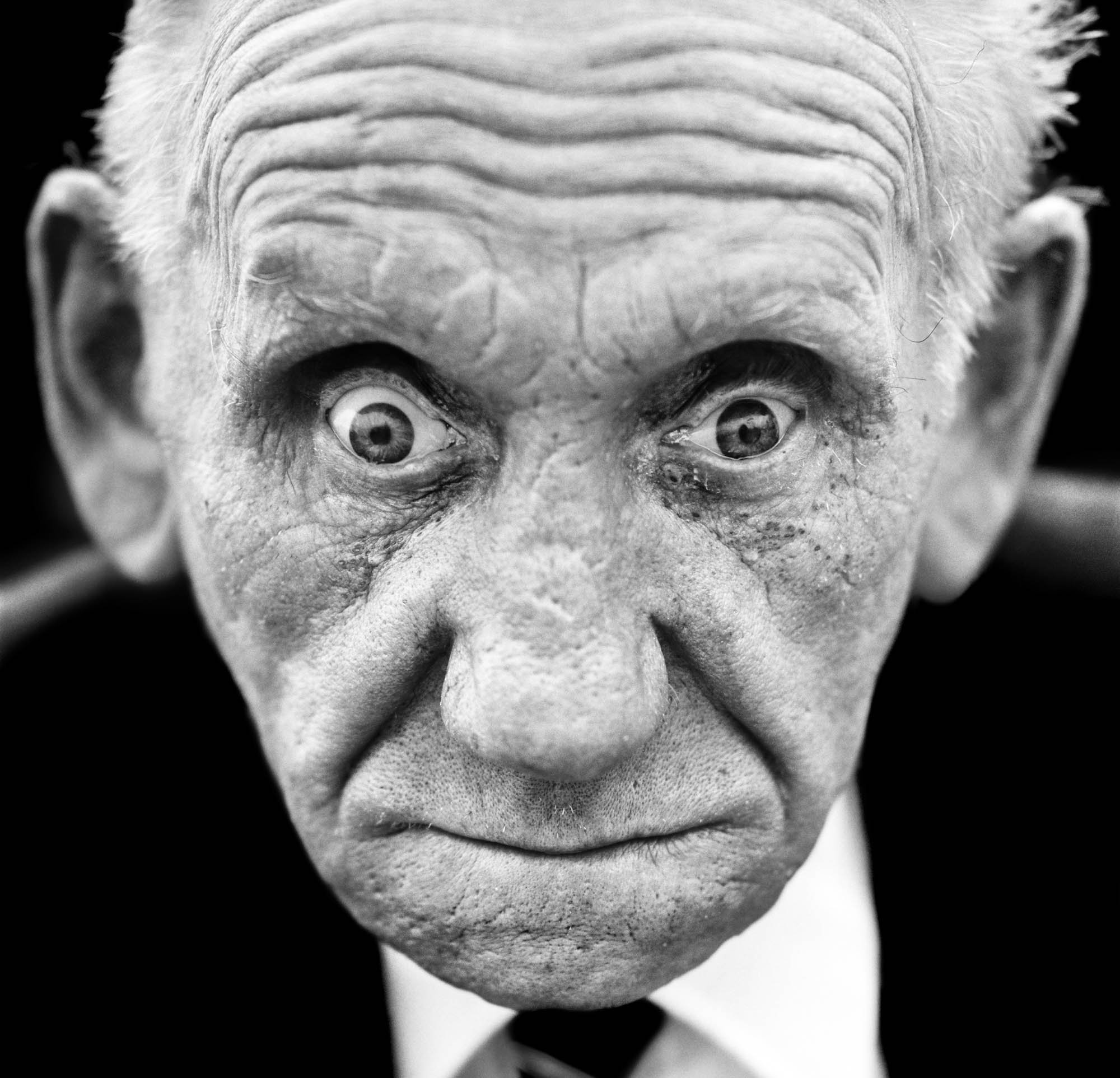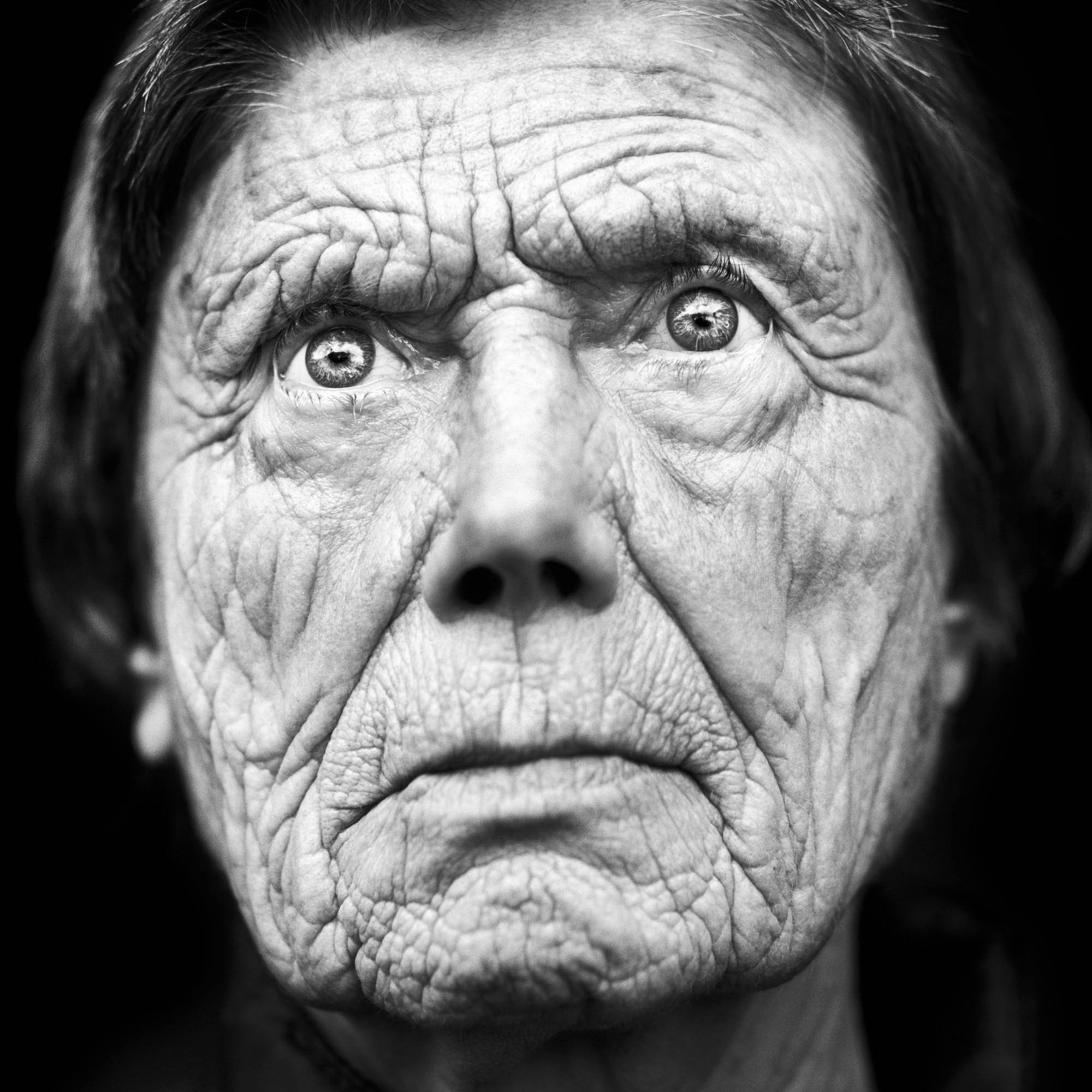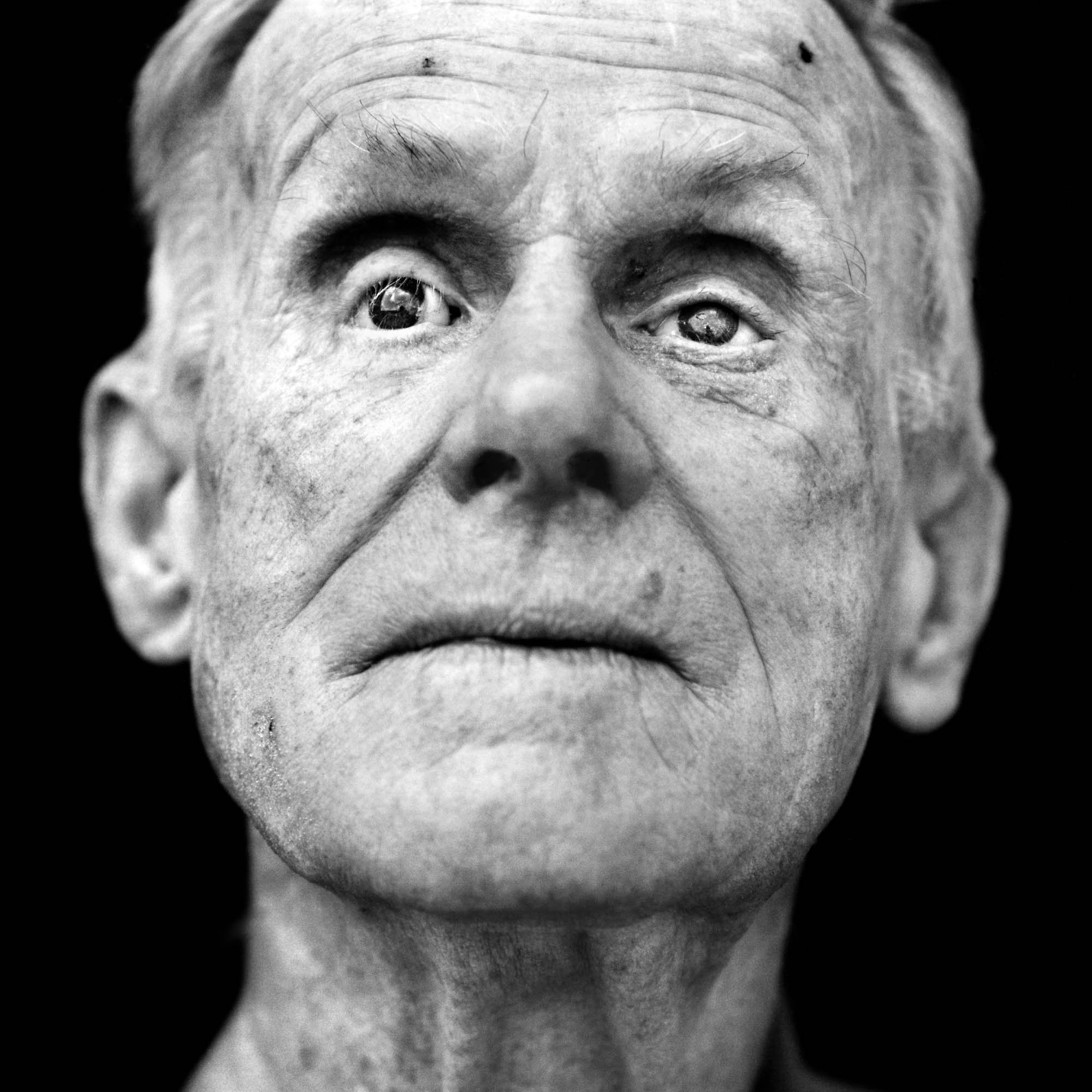On 4 May, the Netherlands commemorates all Dutch people who have died as a result of war since the Second World War. Roemers portrays not only Dutch war victims, but also those from other countries. The photographs will be presented together with brief yet moving interviews that Roemers conducted himself. In these interviews, the people portrayed describe both the circumstances under which they went blind and their daily lives after the war. With The Eyes of War, the Kunsthal presents the sequel to a previous exhibition held in 2007, The Never-Ending War, a film about Second World War veterans. While Roemers was making The Never-Ending War, he was particularly touched by the story of one such blind veteran, Frederick Bentley; this marked the beginning of Roemer's search for blind war veterans in Europe. The Dutch pop group Di-rect used the photograph of Frederick Bentley for the cover of their CD Di-rect.
Stories
The personal stories that accompany the portraits in the exhibition bear witness to the absurdity of the circumstances and the helplessness of those portrayed when faced with their lot. Many of them were by blinded by unexploded munitions from the Second World War, as was the case in the story of a German woman called Anja Stupp. In 1982, three children were playing in the woods when they stumbled across what looked like an old chest. When they opened it, it turned out to be an anti-tank mine. The explosion that followed killed everyone except Anja, who was 12 years old at the time. She survived because she was standing behind the other children.
Roemers photographs his portraits in black and white, from the front and against a black background. Together with the victim's stories, he creates a moving portrait of these victims who can no longer see for themselves.
Martin Roemers
Martin Roemers has a deeply felt interest in the spoils of war. His fascination with the themes of war and peace has resulted in various publications such as ‘Kabul', ‘Between hostile neighbours' and ‘The last batch'. Roemers' work can be seen in collections including those of the Rijksmuseum in Amsterdam and the Army Museum in Delft. He has also had work published in a wide range of international newspapers including The New York Times and The Guardian, and in Dutch news publications such as the Volkskrant, Vrij Nederland and NRC Handelsblad. Roemers has won several awards including two Wold Press Photo prizes.

Publication
The exhibition includes the publication The Eyes of War published by Hatje Cantz and which includes 40 black and white photographs and interviews. The texts are in Dutch, English and German. The publication was designed by Hans van Blommestein, former art director for the NRC M Magazine and German graphic designer Julia Wagner. Cees Nooteboom has written an essay for the publication on the subject of blind war veterans.

